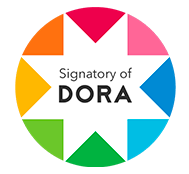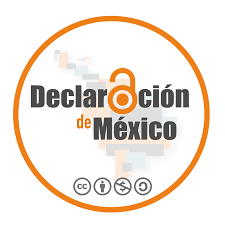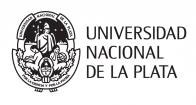Un diseño musicológico reversible para analizar canciones escritas en notación occidental tradicional
DOI:
https://doi.org/10.24215/18530494e035Palabras clave:
teoría musical, práctica musica, morfología, musicología, análisis reversibleResumen
El aprendizaje de canciones es una de las actividades más frecuentes en el campo de la música formal, no formal, académica o popular. A partir de mi trabajo en diferentes Institutos Superiores de Formación Docente, he diseñado un modelo analítico en el que teoría y práctica musical resultan reversibles, durante el proceso de enseñanza-aprendizaje de canciones. He usado como marco teórico, los siete principios del Aprendizaje pleno de David Perkins (2009). Mis objetivos fueron: (1) Analizar en partituras y en interpretaciones musicales cantadas de esas partituras, ocho elementos de morfología musical: pulso, acento, ritmo, tipo de compás, tipo de comienzo, tipo de final, movimiento y frases musicales; y (2) Demostrar la reversibilidad entre teoría y práctica musical que poseen los ocho aspectos morfológicos analizados en canciones y su utilidad pedagógica para el campo de la educación musical. La metodología fue un estudio de caso de cognición y teoría musical de performances, sustentado en la musicología como disciplina unificada y en la música como disciplina teórico-práctica, según ocho aspectos morfológicos musicales específicos. He analizado ocho elementos musicales desde la teoría y desde la práctica musical, en una postura constructivista reversible entre teoría y práctica musical. He podido comprobar la eficacia de la aplicación de este diseño reversible entre teoría y práctica musical para la educación musical. Además, demostré la importancia de considerar la musicología como un campo disciplinar unificado y la música como una disciplina teórico-práctica, para seguir avanzando en el campo de la percepción y cognición musical.
Descargas
Métricas
Citas
Nardelli, María Laura (1981) Mi libro de Música III. Primera sección. Buenos Aires: Ediciones del Collegium Musicum de Buenos Aires.
Perkins, David (2009) Makin Learning Whole: How Seven Principles of Teaching Can Transform Education. San Francisco: Published by Jossey-Bass.
Descargas
Publicado
Cómo citar
Número
Sección
Licencia
Politica vigente desde octubre de 2019
La aceptación del manuscrito por parte de la revista implica la cesión no exclusiva de los derechos patrimoniales de los/as autores/as en favor del editor, quien permite la reutilización, luego de su edición (postprint), bajo una Licencia Creative Commons Atribución-NoComercial-CompartirIgual 4.0 Internacional (CC BY-NC-SA 4.0)
Acorde a estos términos, el material se puede copiar y redistribuir en cualquier medio o formato siempre que a) se cite la autoría y la fuente original de su publicación (revista y URL de la obra), se brinde el acceso a la licencia y se indique si se realizaron cambios; b) no se utilice el material para fines comerciales.
La cesión de derechos no exclusivos implica que luego de su edición (postprint) en Epistemus los/as autores/as pueden publicar su trabajo en cualquier idioma, medio y formato; en tales casos, se solicita que se consigne que el material fue publicado originalmente en esta revista.
Tal cesión supone, también, la autorización de los/as autores/as para que el trabajo sea cosechado por SEDICI, el repositorio institucional de la Universidad Nacional de La Plata, y sea difundido en las bases de datos que el equipo editorial considere adecuadas para incrementar la visibilidad de la publicación y de sus autores/as.
Asimismo, la revista incentiva a los/as autores/as para que luego de su publicación en Epistemus depositen sus producciones en otros repositorios institucionales y temáticos, bajo el principio de que ofrecer a la sociedad la producción científica y académica sin restricciones contribuye a un mayor intercambio del conocimiento global.



























